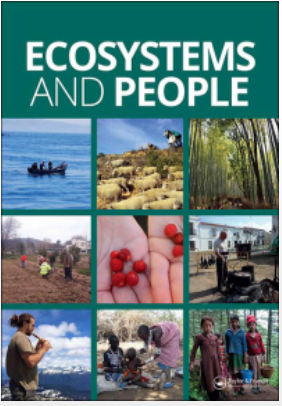合作与冲突的前沿:情境如何影响合作的成功
IF 3.7
Q1 Agricultural and Biological Sciences
引用次数: 10
摘要
从气候变化到土地利用,许多环境挑战的规模和相互联系日益扩大,导致需要跨国界和所有类型的边界合作。在社会生态系统内对单一问题地区或物种采取传统的集中、自上而下和部门性的管理办法,往往在缓解超出其管辖范围的问题方面潜力有限。因此,协作治理方法已经走到了最前沿。过去的大量研究考察了协作努力可能达到预期结果的条件。然而,很少有研究分析了在多个研究中,实现成功合作结果的手段是如何根据上下文而不同的。在这项研究中,我们开始绘制这样做的方法。在背景-机制-结果(CMO)框架的基础上,我们提供了一个编码手册来分析背景变量如何调节机制变量对社会生态系统协同治理结果的影响。通过对四个案例的研究,我们提供了一个概念验证评估,并展示了CMO框架和编码手册的效用,以便在案例之间进行比较,以了解协作结果如何取决于它们发生的社会生态背景。本文章由计算机程序翻译,如有差异,请以英文原文为准。
On the frontiers of collaboration and conflict: how context influences the success of collaboration
ABSTRACT The increasing scale and interconnection of many environmental challenges – from climate change to land use – has resulted in the need to collaborate across borders and boundaries of all types. Traditional centralized, top-down and sectoral approaches to governance of single-issue areas or species within social-ecological systems often have limited potential to alleviate issues that go beyond their jurisdiction. As a result, collaborative governance approaches have come to the forefront. A great deal of past research has examined the conditions under which collaborative efforts are likely to achieve desired outcomes. However, few studies have analyzed how the means to achieve successful collaborative outcomes differ based on context when examined across multiple studies. In this research, we begin to chart a means for doing this. Building onto a Context-Mechanism-Outcome (CMO) Framework, we provide a coding manual to analyse how contextual variables mediate the effects of mechanism variables on outcomes of the collaborative governance of social-ecological systems. Through the examination of four cases, we provide a proof-of-concept assessment and show the utility of the CMO framework and coding manual to draw comparisons across cases for understanding how collaborative outcomes are contingent on the social-ecological context in which they occur.
求助全文
通过发布文献求助,成功后即可免费获取论文全文。
去求助
来源期刊

Ecosystems and People
Agricultural and Biological Sciences-Ecology, Evolution, Behavior and Systematics
CiteScore
7.80
自引率
11.30%
发文量
40
审稿时长
42 weeks
期刊介绍:
Ecosystems and People is an interdisciplinary journal that addresses how biodiversity and ecosystems underpin human quality of life, and how societal activities and preferences drive changes in ecosystems. Research published in Ecosystems and People addresses human-nature relationships and social-ecological systems in a broad sense. This embraces research on biodiversity, ecosystem services, their contributions to quality of life, implications for equity and justice, and the diverse and rich ways in which people relate to nature.
 求助内容:
求助内容: 应助结果提醒方式:
应助结果提醒方式:


